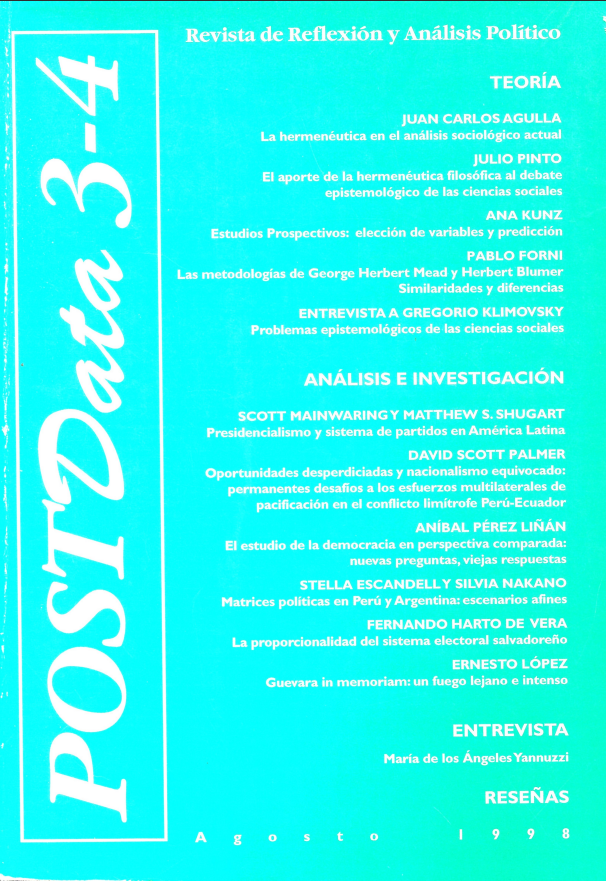The Study of Democracy in Comparative Perspective: New Questions, Old Answers
Keywords:
democracy, transitions, methodology, theory, comparative politicsAbstract
This article attempts to compare two models designed to explain the emergence of democracies. The first one arises from the classical studies of comparative politics, developed as a result of the behavioral revolution in the late 50’s. The second one emerges with the discussions on the transition from authoritarian regimes two decades later. The comparison is intended to target two central questions: 1) the vision of democracy (and the concept of transition) that prevails at both points of time, 2) the dominant explanatory criterion and the central features of the analytical model used in each period. The conclusions analyze the different conceptions of the dependent variable in each case, and suggest that a synthesis will not be possible until it has redefined the focus of study in the current historical context.





